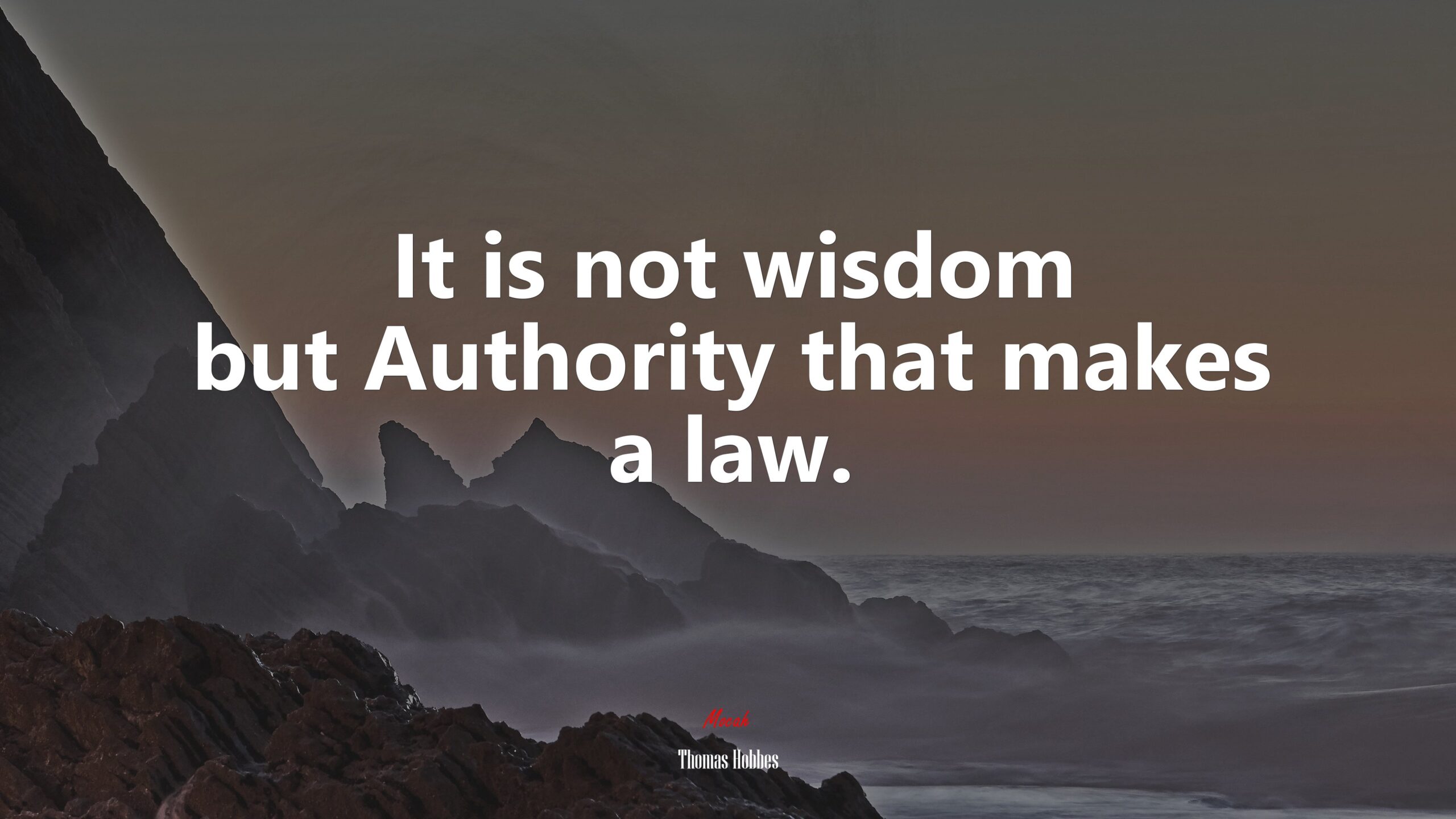Introduction:
In the realm of legal philosophy, the relationship between wisdom and authority in the creation and execution of laws has been a subject of perennial debate. The aphorism, “It is not wisdom but authority that makes a law,” encapsulates a viewpoint that challenges the conventional belief in the inherent wisdom of legal principles. This perspective finds expression in the works of T. Tymoff, a legal scholar whose ideas have stirred considerable contemplation within the academic and intellectual circles.

The Dichotomy of Wisdom and Authority:
T. Tymoff’s assertion sparks a dichotomy between wisdom and authority, inviting us to reevaluate the foundations of legal governance. Traditionally, the concept of law has been closely associated with wisdom – the idea that laws are crafted and upheld based on rational, ethical, and socially beneficial principles. However, Tymoff’s stance challenges this assumption, positing that the ultimate determinant of a law’s existence and efficacy lies in the authority backing it rather than the intrinsic wisdom it embodies.
must read= It is Not Wisdom
Authority as the Arbiter of Legal Order:
From Tymoff’s perspective, authority is not merely a bureaucratic or hierarchical construct but a fundamental prerequisite for the existence of laws. This implies that a law derives its legitimacy and binding nature not from its inherent wisdom or moral standing but from the power and authority vested in the entities responsible for its formulation and enforcement. This raises intriguing questions about the nature of authority and its role in shaping legal systems.
Historical Precedents and Contemporary Implications:
Examining historical precedents, one can find instances where authority, irrespective of its perceived wisdom, has played a pivotal role in shaping legal norms. The assertion that authority makes a law gains credence when analyzing authoritarian regimes where laws were often imposed to serve the interests of those in power rather than the collective wisdom of society. However, this perspective also has contemporary implications, especially in democracies where the legitimacy of laws is ostensibly derived from the consent of the governed.

Challenges to Tymoff’s Perspective:
While Tymoff’s assertion challenges conventional notions, it is not without its critics. Detractors argue that divorcing wisdom from the law may lead to arbitrary and unjust legal systems. They contend that a legal framework devoid of inherent wisdom may lack the ethical underpinnings necessary for a just society. Moreover, the potential for abuse of authority raises concerns about the protection of individual rights and the rule of law.
Reconciling Wisdom and Authority:
To engage with T. Tymoff’s perspective, it becomes imperative to explore avenues for reconciling wisdom and authority in legal governance. Is it possible to conceive of a legal system where authority is balanced by a profound commitment to wisdom, ethics, and justice? Striking this balance requires a nuanced understanding of the interplay between legal institutions, societal values, and the evolving nature of wisdom in a dynamic world.
Conclusion:
In concluding our exploration of T. Tymoff’s perspective on legal governance, it is evident that the aphorism, “It is not wisdom but authority that makes a law,” invites us to question deeply ingrained assumptions about the nature of laws and their underpinnings. While the dichotomy between wisdom and authority is provocative, it is crucial to navigate a middle path that acknowledges the importance of both elements in fostering a just and equitable legal system. As legal scholars and practitioners grapple with these profound questions, the quest for a harmonious integration of wisdom and authority remains a fundamental challenge in the ongoing evolution of legal philosophy.
